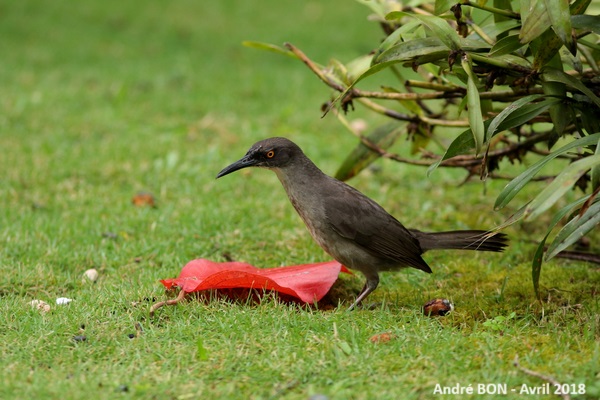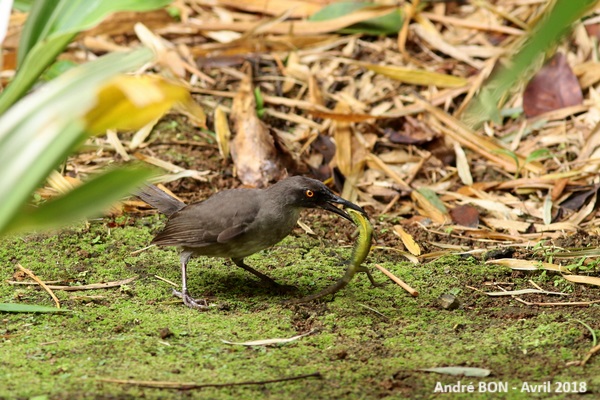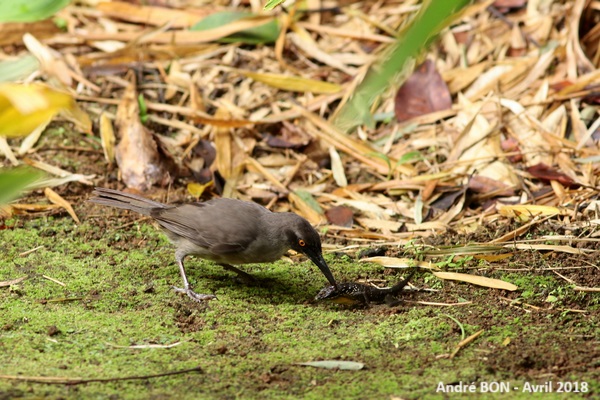


| Grey Trembler (Cinclocerthia gutturalis (Lafresnaye, 1843)) |



|
|
Scientific name: Cinclocerthia gutturalis (Lafresnaye, 1843) Common name: Grey Trembler French name: Trembleur gris Order: Passeriformes Family: Mimidae Size: Body size: 23 to 26 cm; Weight: 65 to 76 g. Habitat: Tropical rainforests in the plains or in the mountains. Food: Omnivorous: Insects, spiders, snails, lizards, fruits, berries and pods. Nesting: The nest built with dry grass has a dome shape with a side entrance. It is often located in a palm tree or in the hollow of a tree, or even on a fork. Females lay two to three eggs between March and August. Migration: Sedentary. Geographic area: Martinique and Saint Lucia. |
The Grey Trembler has grey-brown upperparts. The base of the back is a little lighter. The crown and lores are darker and reveal a faintly marked greyish eyebrow. The throat and underside of the belly are creamy white. The breast and flanks are light grey-brown. The legs are dark brown. The bill is black. The iris is yellow or whitish. Females have a much longer bill than males. Its common name comes from the fact that it sometimes lets its wings hanging down and then quickly moves them upwards with a kind of trembling movement. |
| [To know more about the Grey Trembler] [Next picture] [Top] |

|
A visit to the beautiful Balata garden also allows you to observe some Martinique birds. It was here that I made my only Grey Trembler sighting during my short stay on the island. |
| [To know more about the Grey Trembler] [Next picture] [Previous picture] [Top] |

|
Martinique Anole on the menu today. |
| [To know more about the Grey Trembler] [Previous picture] [Top] |

|
I don't have enough experience to determine whether we have a male or female here based on bill length. |